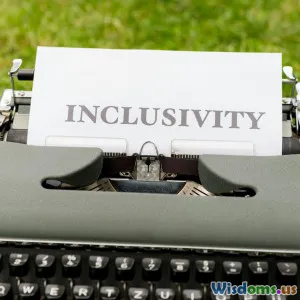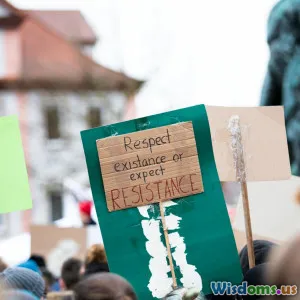
Navigating Multicultural Societies
6 min read Explore the dynamics of multicultural societies, their challenges, and practical strategies for fostering inclusivity and understanding. (0 Reviews)
Navigating Multicultural Societies
In today's globalized world, multicultural societies are becoming increasingly common. These societies bring together individuals from various cultural backgrounds, creating a rich tapestry of traditions, languages, and beliefs. However, the complexities of multiculturalism can also lead to challenges such as social tension and misunderstanding. This article delves into the dynamics of multicultural societies, their benefits, challenges, and practical strategies for fostering a harmonious coexistence.
Understanding Multiculturalism
Multiculturalism refers to the coexistence of diverse cultural groups within a society. This diversity can stem from various factors, including immigration, globalization, and historical ties between nations. In multicultural societies, individuals may have different values, customs, and worldviews, which can enrich the community but also create friction if not managed properly.
Benefits of Multicultural Societies
-
Cultural Enrichment: The fusion of various cultures can lead to a vibrant society where art, cuisine, language, and traditions are celebrated and shared. For example, cities like Toronto and New York are known for their cultural festivals, showcasing foods, music, and traditions from around the globe.
-
Economic Advantages: Multicultural societies often benefit economically from a diverse workforce. Different perspectives can drive innovation and creativity in various sectors. For instance, tech companies that embrace diversity tend to perform better and foster more innovative solutions.
-
Social Learning: Living in a multicultural environment encourages individuals to learn from one another, broadening their understanding of the world. This can promote empathy and reduce prejudice, ultimately leading to a more cohesive society.
Challenges of Multicultural Societies
Despite the numerous advantages, multicultural societies also face significant challenges:
-
Cultural Clashes: Differences in values and traditions can lead to misunderstandings and conflicts. For example, differing views on dress codes, religious practices, or social norms can create tension among community members.
-
Discrimination and Prejudice: Individuals from minority cultures often face discrimination, which can hinder their ability to integrate fully into society. This can manifest in various ways, from microaggressions to systemic inequalities.
-
Language Barriers: Communication can be a significant hurdle in multicultural societies, particularly for immigrants or non-native speakers. Language barriers can limit access to information, services, and opportunities, further marginalizing certain groups.
Strategies for Fostering Inclusivity
To navigate the complexities of multicultural societies effectively, it is essential to implement practical strategies that promote inclusivity and understanding:
-
Education and Awareness: Educational programs that focus on cultural sensitivity and awareness can help individuals understand and appreciate different perspectives. Schools and community organizations should offer workshops and training sessions that highlight the importance of multiculturalism.
-
Encouraging Dialogue: Open conversations about cultural differences can alleviate misunderstandings and foster connections. Community forums, cultural exchange programs, and interfaith dialogues can create safe spaces for individuals to share their experiences and learn from one another.
-
Promoting Inclusive Policies: Governments and organizations should implement policies that support diversity and inclusion. This includes fair hiring practices, anti-discrimination laws, and programs that address socio-economic disparities among cultural groups.
-
Celebrating Diversity: Public events that celebrate various cultures can help build a sense of community and belonging. Festivals, art exhibitions, and food fairs are excellent opportunities for individuals to engage with different cultures and foster mutual respect.
-
Encouraging Representation: Ensuring that diverse voices are represented in media, politics, and community leadership is vital for creating a more inclusive society. Representation can empower minority groups and inspire future generations.
Conclusion
Navigating multicultural societies requires a proactive approach that acknowledges both the challenges and the benefits of diversity. By fostering inclusivity, promoting dialogue, and celebrating cultural differences, communities can create environments where all individuals feel valued and understood. As we continue to embrace globalization, the ability to navigate and thrive in multicultural settings will be essential for building a harmonious society.
In conclusion, the journey towards a truly inclusive multicultural society is ongoing. It demands commitment, empathy, and education from all members of the community. By working together, we can create a world where diversity is celebrated and every individual can contribute to the rich tapestry of society.
Rate the Post
User Reviews
Popular Posts





















